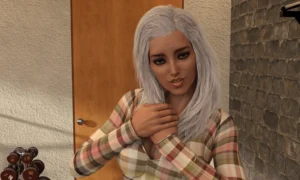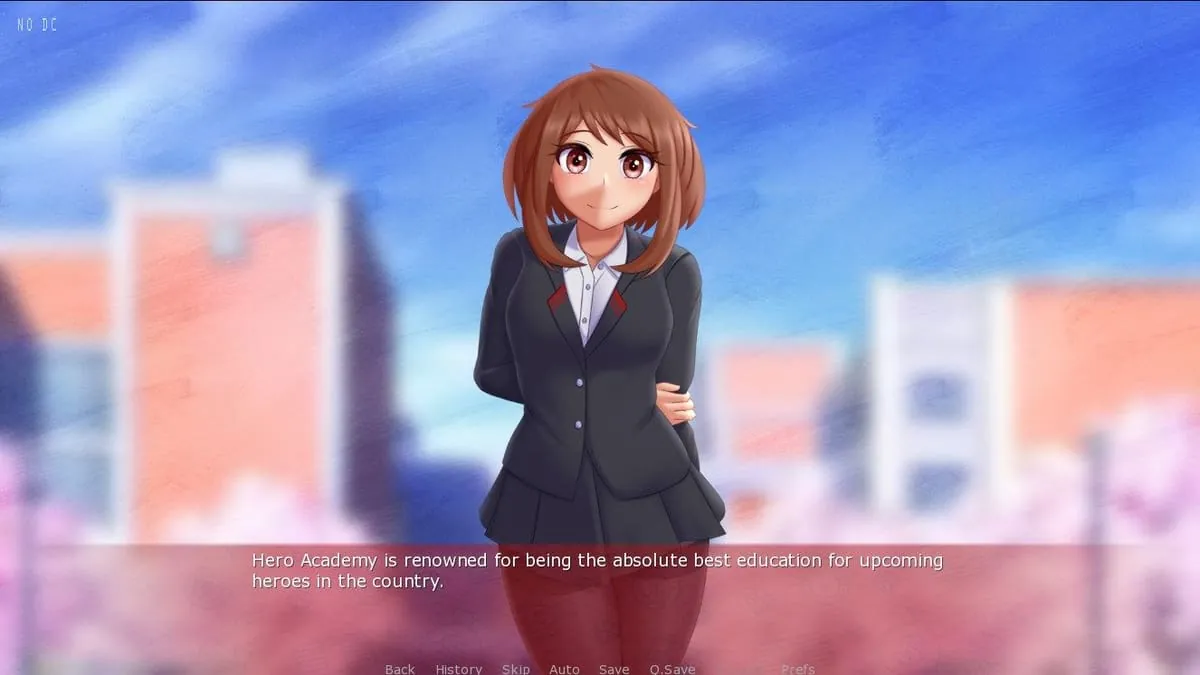
Parental Love
Play Parental Love
Parental Love review
Exploring the Story, Mechanics, and Player Experience of Parental Love
Parental Love is a distinctive adult 3D adventure game that immerses players in a complex narrative centered around a father reconnecting with his children after years apart. Known for its branching storylines and morally ambiguous choices, this game offers a unique blend of visual novel and life-simulation gameplay. In this article, we explore the core elements of Parental Love, including its storyline, gameplay mechanics, and player engagement, providing practical insights and personal reflections to help you navigate its emotionally charged world.
Understanding Parental Love: Storyline and Characters
Stepping into the world of Parental Love is like opening a deeply personal family album where you hold the pen to write the next chapter. 😢 This isn’t your typical game; it’s an emotional journey that puts you in the shoes of a father fighting for a second chance. The Parental Love storyline is a powerful exploration of redemption, loss, and the fragile bonds of family, making every decision feel weighty and real. If you’ve ever wondered how your choices in a game can lead to such diverse outcomes, you’re about to discover the magic behind its design. Let’s pull back the curtain and meet the people who make this story so compelling. ❤️
Who Are the Main Characters?
At the heart of this family dynamics game are characters so well-crafted they feel like real people you know. 🧑👧👧 You play as Mark, a father grappling with a troubled past of addiction and poor choices that cost him his family. His journey is the core of the Parental Love experience, and his growth—or lack thereof—is directly in your hands. Then there are his two daughters: Emily, the older, more cautious one who remembers the pain of his absence, and Sarah, the younger daughter who yearns for the father she never really knew. Their personalities and reactions to you are pivotal to the Parental Love storyline.
The other key figures include Lisa, Mark’s ex-wife, who is protective, rightfully skeptical, and a major obstacle—or potential ally—in your quest for custody. There’s also David, a supportive friend who offers guidance, and Mrs. Higgins, a stern social worker whose reports can make or break your case. Each of these Parental Love characters brings a unique perspective to the narrative, challenging you to balance your desires with their needs and expectations. 😊
I remember my first playthrough; I was so focused on winning over Emily with grand gestures that I completely neglected Sarah’s subtle cries for attention. The result? Emily warmed up to me, but Sarah became distant, and that branch of the story ended with a heartbreaking rift I hadn’t anticipated. It taught me that in this game, every interaction matters, and the character development Parental Love offers is deeply tied to how you nurture these relationships.
To help you keep track, here’s a breakdown of the main Parental Love characters and how they influence the journey:
| Character | Role | Influence on Storyline |
|---|---|---|
| Mark (Protagonist) | Father seeking redemption | Your choices define his path to recovery or relapse, directly affecting custody outcomes and family reconciliation. |
| Emily (Elder Daughter) | Cautious and memory-driven | Her trust is hard-earned; decisions involving honesty and consistency can lead to deep bonds or permanent estrangement. |
| Sarah (Younger Daughter) | Innocent and hopeful | Responds to attention and stability; neglecting her can trigger emotional withdrawal, impacting family unity. |
| Lisa (Ex-Spouse) | Protective mother | Her approval is crucial; actions showing genuine change can ease tensions, while failures may escalate legal battles. |
| David (Friend) | Moral compass | Offers advice that can steer you toward healthier choices, influencing Mark’s personal growth and narrative branches. |
| Mrs. Higgins (Social Worker) | Authority figure | Her evaluations depend on your parenting decisions; positive reports open paths to reconciliation, negative ones lead to dead ends. |
Understanding these roles is your first step toward mastering the branching storylines that make this game so replayable. 😌 Pay close attention to their dialogues and non-verbal cues—they’re often hints about what they need from you. My advice? In your first run, try to listen more than you act; you’ll be surprised how much you learn about the Parental Love characters just by being present in their world.
What Drives the Narrative?
The Parental Love storyline is fueled by raw, human emotions and the consequences of past mistakes. 🎭 It all starts with Mark’s release from rehab and his desperate attempt to regain custody of his daughters amid a bitter legal fight. This setup creates a tense, emotionally charged atmosphere where every small victory or setback feels monumental. The narrative isn’t just about winning a case; it’s about healing wounds, rebuilding trust, and confronting the ghosts of addiction and neglect. This makes it a standout moral choices game, as you’re constantly weighing what’s best for the kids against your own desires.
What really brings the Parental Love storyline to life is how it mirrors real-life family struggles. For instance, in one of my sessions, I had to decide whether to spend a rare day off taking the girls to the park or attending a support group meeting. I chose the park, thinking it would strengthen our bond, but it backfired when Lisa found out and accused me of irresponsible behavior. That single choice altered the branching storylines, locking me out of a potential reconciliation path and teaching me that sometimes, the “fun” option isn’t the right one in a family dynamics game. 😅
The game excels at character development Parental Love by tying progress to emotional milestones. As Mark, you might start off shaky and uncertain, but through consistent, caring actions, you can watch him evolve into a dependable father. Conversely, poor choices can stall his growth or even lead to regression, showing how fragile personal change can be. This depth is why the Parental Love storyline resonates so deeply—it’s not just about reaching an ending, but about the transformation along the way.
Here are a few key themes that drive the narrative forward:
– Redemption and Forgiveness: Can Mark truly change, and will his family let him?
– Sacrifice vs. Self-interest: Do you prioritize your daughters’ needs or your own comfort?
– Trust Building: Every interaction is a step toward mending broken relationships or breaking them further.
To navigate this, I recommend keeping a journal of your decisions. It might sound extra, but noting how certain game narrative choices affected the characters helped me see patterns and avoid past mistakes in future playthroughs. Remember, the Parental Love storyline is designed to make you feel the weight of responsibility—embrace it, and you’ll have a richer experience. 🌟
How Do Player Choices Shape the Story?
In Parental Love, your decisions are the engine that drives everything, turning it into a masterclass in game narrative choices. 🎮 From the moment you start, you’re faced with dilemmas that split the path into countless branching storylines. Want to focus on rebuilding your career to provide stability? That might mean missing key moments with your daughters, leading to emotional distance. Or, you could prioritize family time, risking financial instability that Lisa uses against you in court. There’s no “perfect” path—only the one you carve through your values and mistakes.
The game narrative choices here are beautifully nuanced. For example, early on, you might encounter a scenario where Emily asks about your past addiction. Do you lie to protect her feelings, tell a half-truth, or be brutally honest? I chose honesty once, and it initially drove her away, but it eventually paved the way for a deeper, more authentic relationship. Another time, I lied, and it created a secret that poisoned our interactions later. This is what makes it a profound moral choices game—you’re constantly balancing short-term comfort against long-term trust. 😔
One of my favorite aspects is how the branching storylines ensure that no two playthroughs are alike. I’ve had endings where Mark and his daughters reunited as a happy family, others where he regained partial custody but with strained relations, and even one where he relapsed and lost everything. This variability stems from the character development Parental Love system, where relationships evolve based on cumulative choices, not just big moments. Small actions, like remembering a birthday or keeping a promise, can subtly shift the narrative toward brighter outcomes.
Practical tip: Don’t be afraid to save often and experiment! Here’s a simple approach to maximize your impact:
– Listen Actively: Pay attention to what each character values; Emily might appreciate honesty, while Sarah needs reassurance.
– Balance Your Time: Split your efforts between personal growth (like attending therapy) and family activities to show holistic improvement.
– Embrace Consequences: If a choice backfires, see it as part of the story—it often leads to unexpected branching storylines that are just as meaningful.
Ultimately, the game narrative choices in Parental Love teach us about empathy and the ripple effects of our actions. Whether you’re striving for that perfect ending or learning from the messy ones, you’re participating in a story that celebrates the complexity of human connections. So dive in, make those tough calls, and watch how your unique path unfolds—it’s an experience that stays with you long after the screen goes dark. ❤️
Parental Love offers a deeply immersive experience that challenges players with emotionally charged storytelling and complex decision-making. Its unique blend of narrative depth and gameplay mechanics creates a compelling world where every choice matters. Whether you are drawn to its character-driven plot or the strategic elements of relationship management, Parental Love stands out as a distinctive title in its genre. Dive in, explore its many paths, and discover the impact of your decisions in this provocative adventure.











